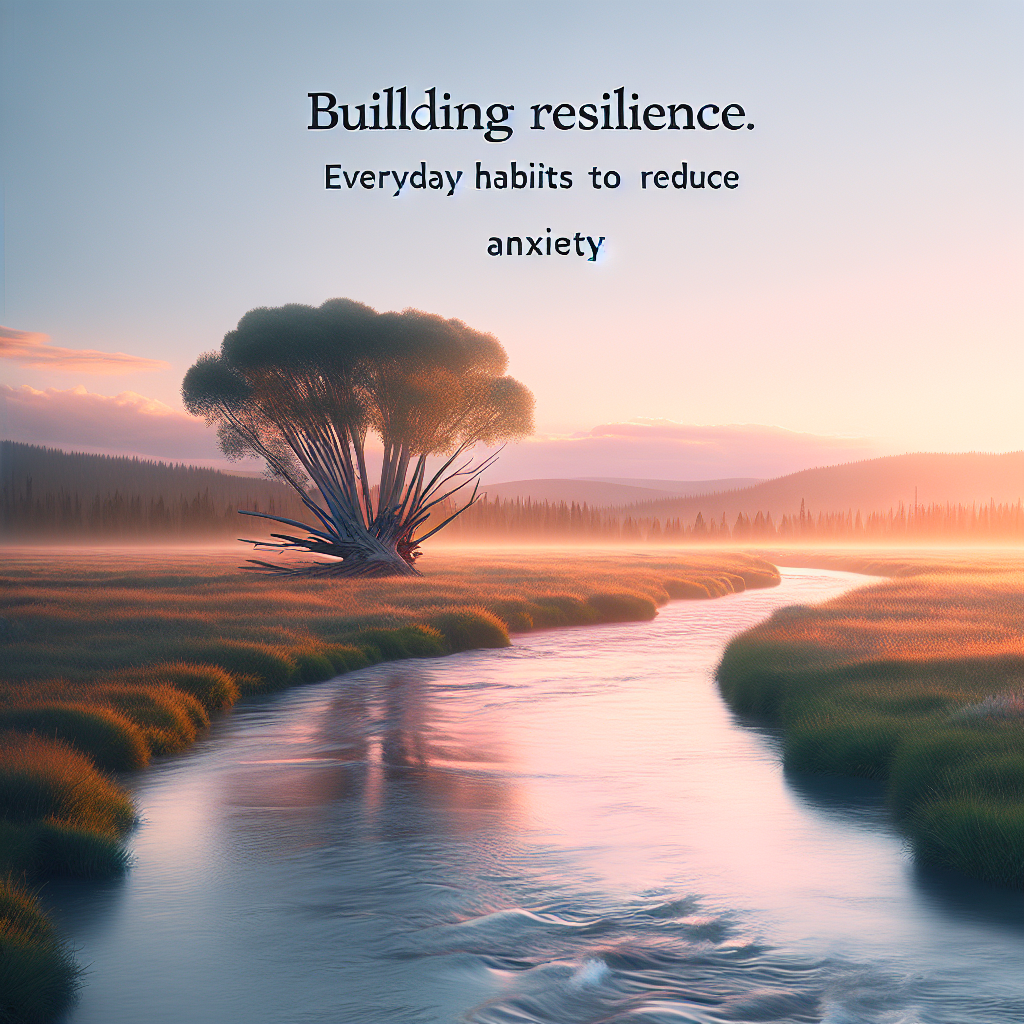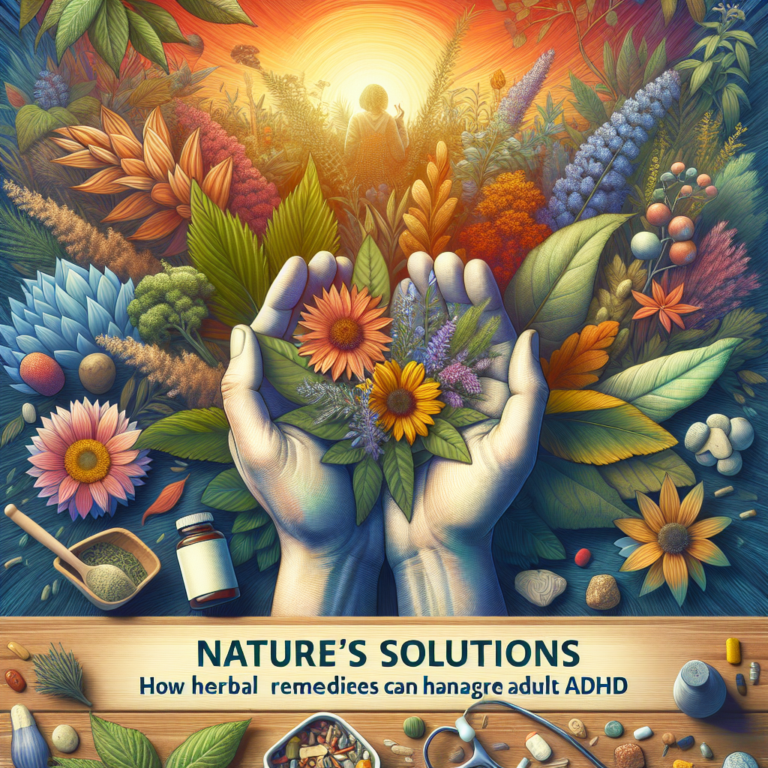
Building Resilience: Everyday Habits to Reduce Anxiety for a Thriving Life
Introduction
In a world where the hustle and bustle often feel relentless, anxiety has become a common companion for many of us. Whether it’s due to work pressures, family responsibilities, or the uncertainties of life, anxiety can hinder our ability to thrive. The good news is that we can cultivate resilience through simple, everyday habits. This article explores the transformative power of these habits, showing how Building Resilience: Everyday Habits to Reduce Anxiety can empower you to not just cope, but to flourish.
Understanding Resilience and Anxiety
What is Resilience?
Resilience is the capacity to recover quickly from difficulties. It’s what helps us bounce back from setbacks and maintain emotional stability amidst the chaos. Building resilience isn’t just a personal goal; it can significantly enhance our overall quality of life.
The Impact of Anxiety
Anxiety can manifest in various forms, ranging from mild worry to debilitating panic attacks. Recent surveys show that approximately 31.1% of adults experience some form of anxiety disorder during their lifetime. This prevalence underscores the importance of learning to manage anxiety effectively.
The Science Behind Building Resilience
Before diving into everyday habits, it’s essential to understand the science that supports these practices. Studies indicate that resilience can be strengthened through both mental and physical habits. Neuroplasticity—the brain’s ability to reorganize itself by forming new neural connections—plays a significant role in how we respond to stressors. This means that by adopting positive habits, we can essentially "rewire" our brains, reducing anxiety levels over time.
Everyday Habits That Build Resilience
1. Mindfulness Meditation: A Calm Mind within Reach
What it is: Mindfulness meditation involves focusing your attention on the present moment without judgment.
How it helps: Research by the American Psychological Association shows that regular mindfulness practice can reduce anxiety by promoting emotional regulation and fostering a sense of calm.
Case Study: Sarah’s Transformational Journey
Meet Sarah, a 32-year-old marketing professional. After facing severe anxiety during a corporate downsizing, she turned to mindfulness meditation. Within weeks, Sarah noticed increased focus, reduced anxiety levels, and improved relationships at work.
| Key Benefits of Mindfulness |
|---|
| Reduces stress and anxiety |
| Enhances emotional resilience |
| Improves attention and focus |
By incorporating just ten minutes of mindfulness into her daily routine, Sarah exemplified how Building Resilience: Everyday Habits to Reduce Anxiety can lead to profound changes.
2. Physical Activity: Move to Improve
What it is: Regular exercise, whether it’s yoga, running, or dancing.
How it helps: The Mayo Clinic states that exercise produces endorphins, the body’s natural stress-relievers, and boosts self-esteem.
Case Study: Tom’s Fitness Success
Tom, a 45-year-old accountant, found himself feeling overwhelmed by work-related stress. He adopted a routine that included jogging three times a week. Six months later, Tom reported not only weight loss but also a significant reduction in anxiety levels.
| Exercise and Anxiety Connection |
|---|
| Regular exercise reduces cortisol levels |
| Increases serotonin production |
| Enhances overall mood |
Tom’s journey illustrates that Building Resilience: Everyday Habits to Reduce Anxiety can be as simple as a daily jog.
3. Balanced Nutrition: Fuel Your Body, Fuel Your Mind
What it is: A diet rich in nutrients that support mental health.
How it helps: Foods rich in omega-3 fatty acids, like salmon and flaxseeds, can improve brain health and reduce anxiety.
Case Study: Lisa’s Culinary Shift
Lisa, a 29-year-old teacher, realized that her high-sugar diet contributed to her anxiety. After switching to whole foods and incorporating more fruits and vegetables, she reported feeling calmer and more focused at work.
| Food Choices for Reducing Anxiety |
|---|
| Omega-3 rich foods (salmon, walnuts) |
| Leafy greens (spinach, kale) |
| Antioxidant-rich berries |
Lisa’s story makes clear that Building Resilience: Everyday Habits to Reduce Anxiety begins in the kitchen.
4. Quality Sleep: The Foundation of Resilience
What it is: Prioritizing sleep by establishing a consistent routine.
How it helps: The Sleep Foundation reports that adequate sleep improves mood, enhances emotional regulation, and boosts resilience against stress.
Case Study: James’ Sleep Transformation
James, a 36-year-old project manager, used to sacrifice sleep for work. After experiencing burnout, he committed to getting seven to eight hours of sleep nightly. In just a month, his anxiety levels dropped significantly, and he felt more productive at work.
| Sleep and Mental Health Statistics |
|---|
| 7-9 hours of sleep improves mental clarity |
| Reduces vulnerability to stress |
| Enhances problem-solving abilities |
James’s experience reinforces how Building Resilience: Everyday Habits to Reduce Anxiety can be profoundly impacted by sleep.
5. Social Connections: Strength in Community
What it is: Building strong relationships with friends and family.
How it helps: The American Psychological Association highlights that social support can mitigate the effects of stress and anxiety.
Case Study: Kim’s Support Network
Kim, a 40-year-old nurse, felt isolated during the pandemic. To combat her anxiety, she reached out to friends and family more often. As she rebuilt her social connections, Kim found that sharing her experiences eased her anxiety and enhanced her resilience.
| Benefits of Social Connections |
|---|
| Provides emotional support |
| Increases feelings of belonging |
| Reduces feelings of isolation |
Kim’s proactive approach illustrates that Building Resilience: Everyday Habits to Reduce Anxiety can flourish through connection.
Conclusion: Taking Action Towards Resilience
Building resilience is not a one-time effort but a continuous journey. By integrating these five everyday habits into your life, you can significantly reduce anxiety and improve your quality of life. Remember, resilience is like a muscle—the more you practice, the stronger it becomes. So, why not start today? Embrace these habits and take the first step towards a more resilient you.
FAQs
1. Can I build resilience if I have severe anxiety?
Yes, even if you experience severe anxiety, these habits can still help. Start slowly and seek professional guidance if necessary.
2. How long does it take to see results?
Results vary by individual, but consistent practice typically shows noticeable improvements in a few weeks.
3. Is mindfulness meditation difficult to learn?
Not at all! There are many apps and online resources that can guide you through the process.
4. What if I don’t have time for exercise?
Even short bursts of activity can be beneficial. Try a 10-minute walk during lunch, or take the stairs instead of the elevator.
5. How do I maintain these habits long-term?
Set realistic goals, track your progress, and don’t hesitate to reach out to others for support. Building resilience is a lifelong commitment.
By understanding and implementing these Building Resilience: Everyday Habits to Reduce Anxiety, you not only improve your mental health but also pave the way for a more fulfilling life. Your journey starts with one small step—take it today.















